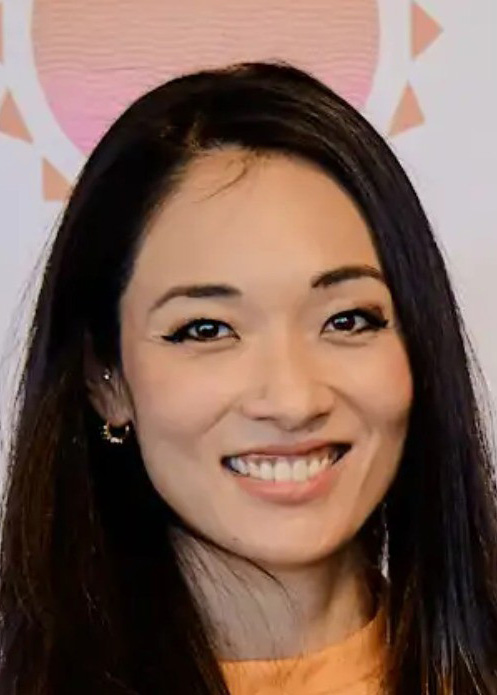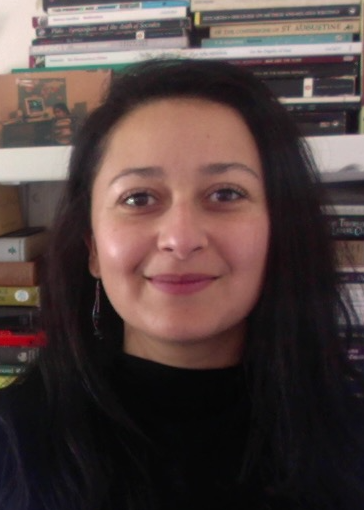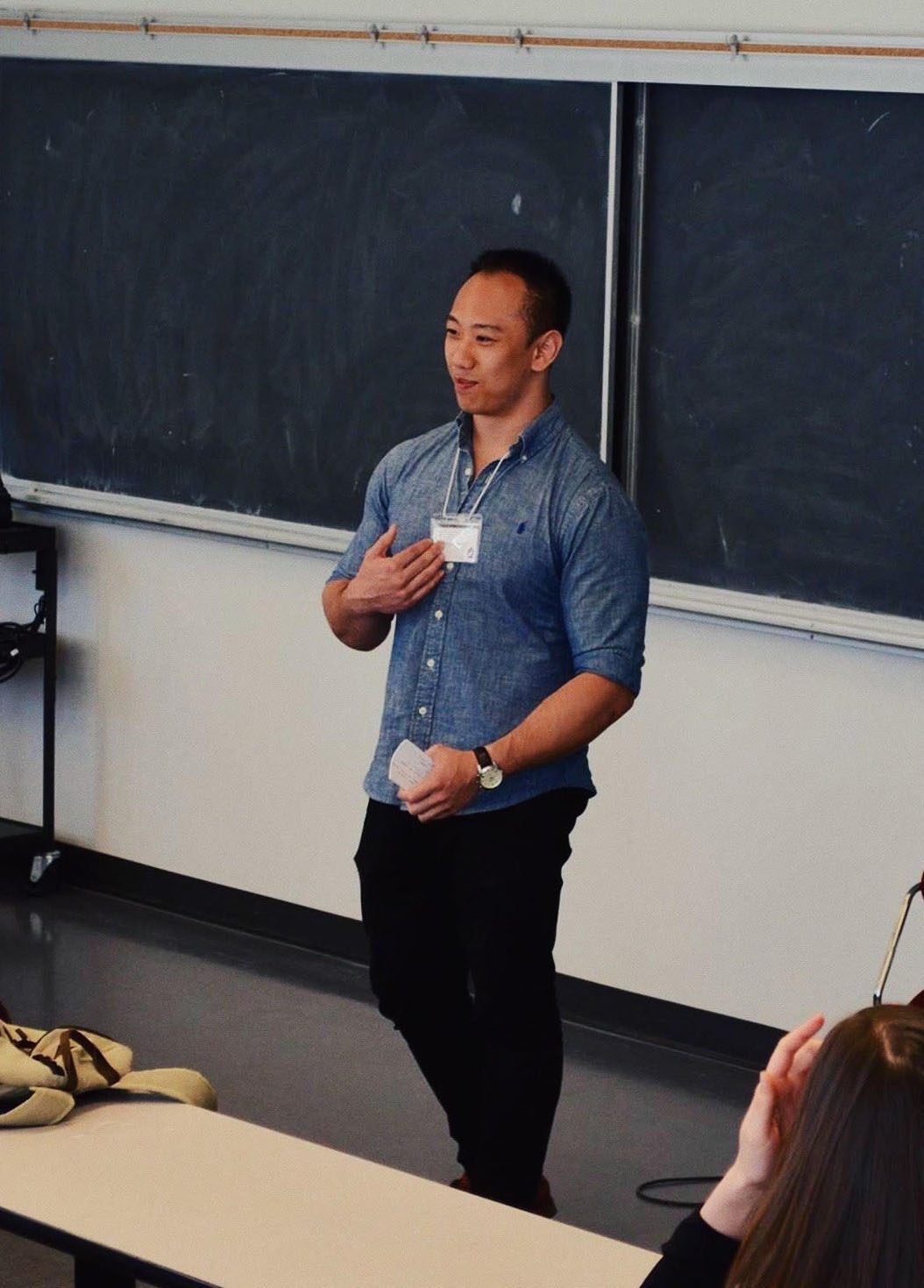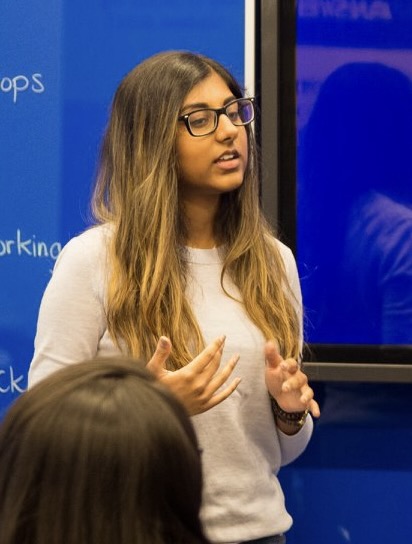Christina Morrow
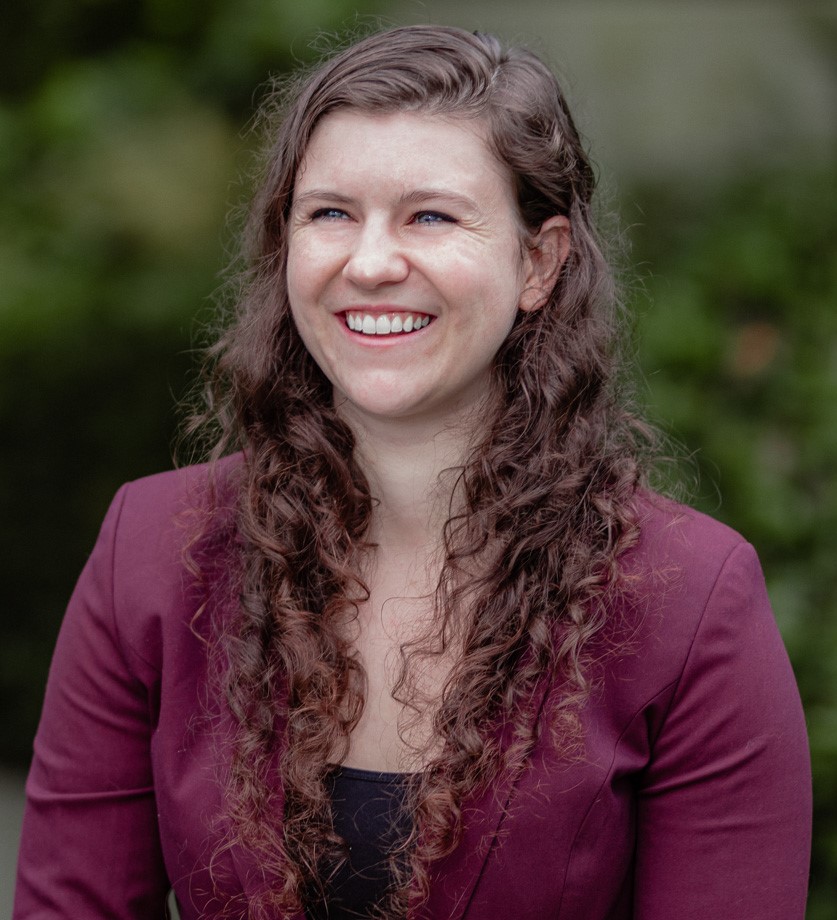
Why did you choose your program at UBC and what did you enjoy most about it?
I took two years off after high school to work and travel. During that time, I solo traveled around South East Asia and Europe for eight months. Travel allowed me to learn self-sufficiency, how to deal with stressful situations, and how to comfortably (and constantly) meet new people.
I chose International Relations as my major because I was interested in economics, learning new languages, and I liked the idea of learning more about history and current events. Economics classes were my favourite, especially game theory. I loved gaining a deeper understanding of economic policy and the motivations behind business decisions.
What were some of your most meaningful experiences at UBC?
I loved being part of UBC Cheer. I was on the team my entire undergrad, and the friendships, late nights, and love for the team that we all shared was something I wouldn’t trade for the world.
I spent a summer interning at a sea turtle and sloth conservation organization in Costa Rica through the International Service Learning program. I became incredibly close with the three other UBC students in the program, and we made some really meaningful change at the organization we worked for. It was rewarding, challenging, and something that we all could take pride in. We planted 200 trees and helped over 1,000 sea turtles hatch that would have otherwise been taken by poachers.
What choices did you make at UBC that contributed to your career success / journey?
I realized in my third year that I found the business sector really interesting, so I only applied to co-op postings that were looking for business students. I was creative and used my serving experience as “building long-lasting customer relationships, upselling, and explaining the nuances of products”, which allowed me to lock down a sales and marketing co-op. I worked for eight months at a startup, before joining Arts Co-op’s entrepreneurial program for my final four month placement.
In March 2020, I realized that there were no clothing brands for women in martial arts, even though they made up 35% of people in gyms. At the time, I had been training Muay Thai for three years (similar to kick boxing with elbows and knees), and all of my friends were wearing men’s or unisex gear to train. I realized that if I didn’t solve the problem, someone else would.
So I built Wicked Rose, a Canadian-made activewear brand for women in martial arts. I spent my final year at UBC finishing my last seven classes, taking part in the entrepreneurial co-op program, joining the League of Innovators Accelerator, and going through entrepreneurship@UBC’s CORE program.
What was your first job after graduation and what other jobs did you have before your current position?
After graduating, I wanted to grab a serving job so that I could focus on my business in the daytime and work something relatively easy at night. I didn’t want a 9-5 that would require all of my brain power and leave nothing for Wicked Rose. Working a night job has allowed me to fully immerse myself in the Canadian startup ecosystem these past two years; I’ve taken part in accelerators, won pitch competitions, and built up a really strong mentor network.
Is your current career path as you originally intended? What challenges did you face in launching your career?
Absolutely not. I came to UBC uncertain of what I wanted to do, but International Relations sounded the most interesting to me. In third year I realized that I wanted to make the transition into the business sector, so I pursued co-ops that I thought would help me make the jump. I was good at writing creative cover letters and resumes, so I scored 10 interviews for the 13 applications I submitted. Unfortunately, once I would get to an interview, the employer would realize that I didn’t have the experience that the other candidates had, and I wouldn’t get far. I learned tenacity and grit going through those ten interviews to get a job that I was enthusiastic (but relatively unqualified) for. My eight month sales and marketing co-op allowed me to dip my toes into the startup space long before I had my own business.
In terms of challenges, as a first-time solo founder without a business background, or experience in apparel, starting a business was tough. I leaned heavily on accelerators and finding mentors who had experience in the apparel space, but I received a lot of pushback for going it alone without a cofounder. I had to balance my final year of university with trying to get a business off the ground, all the while juggling the accelerators that I was part of. It hasn’t been a smooth journey to get here, but I’m so happy with the progress that the business has made and the brand I’ve built.
What do you like about your current job and what do you find challenging? How does it relate to your degree?
I love being able to build a brand from the ground up. I love having a singular vision that drives the business forward, but still surrounding myself with people who will correct my course if I get lost. I love making new founder friends, and educating people on Wicked Rose and the massive untapped market that is women’s martial arts. I love being able to share what I’ve learned since launching my business, and continuing to make connections and learning the billions of things there are to know about building a business.
I find that being a solo founder can be challenging. If I lose motivation, nothing gets done because I don’t have a cofounder to pick up the slack. Bootstrapping a business is difficult, and it means that you have to be scrappy with grants, providing funding yourself, and managing money. I also sometimes find it challenging to motivate myself to work on the business without being in a coworking space or having a deadline I need to hit, so time blocking and holding myself accountable are some things that I’d like to work on.
My arts degree allowed me to become better at presenting, which is great for pitching Wicked Rose, and I’m very used to writing essays, which made for a smooth transition into writing business plans and applications.
From your experience, what has been the value of having an Arts degree?
This is a hot take, but I believe that the job prospects for Arts and Business degrees can be very similar if you’re willing to get creative and talk your way into a space. I love the versatility of Arts degrees, because there are so many different jobs that you can pursue with one. Arts kids are comfortable presenting, writing in-depth essays on complex topics, and are good at making friends, which is great for a whole host of different career options.
What advice would you give to students and alumni interested in breaking into your industry?
We need more Arts students and graduates in entrepreneurship. Just because you don’t have a business/science/engineering degree, doesn’t mean that you can’t be an incredible entrepreneur with deep domain expertise. To build a business, you just have to find a problem to solve that you’re passionate about, and it helps if it’s a problem that you experience. Arts students are passionate about a whole host of things, and welcoming more Arts kids into entrepreneurial spaces will create so many new and exciting businesses that otherwise wouldn’t exist.
What advice would you give to your first-year self?
I’d probably say to check in with Arts Advising earlier. I spent my first three years of university taking whichever classes I wanted, which included tons of interesting electives, but it meant that I messed up and had a limited set of classes I could take in my final two years, and I ended up having to take eight Spanish classes to fulfill my degree requirements. Had I checked earlier, I could’ve planned my degree better and had more freedom for classes I was interested in at the end of my degree rather than just at the beginning.
Christina Morrow



Why did you choose your program at UBC and what did you enjoy most about it?
I took two years off after high school to work and travel. During that time, I solo traveled around South East Asia and Europe for eight months. Travel allowed me to learn self-sufficiency, how to deal with stressful situations, and how to comfortably (and constantly) meet new people.
I chose International Relations as my major because I was interested in economics, learning new languages, and I liked the idea of learning more about history and current events. Economics classes were my favourite, especially game theory. I loved gaining a deeper understanding of economic policy and the motivations behind business decisions.
What were some of your most meaningful experiences at UBC?
I loved being part of UBC Cheer. I was on the team my entire undergrad, and the friendships, late nights, and love for the team that we all shared was something I wouldn’t trade for the world.
I spent a summer interning at a sea turtle and sloth conservation organization in Costa Rica through the International Service Learning program. I became incredibly close with the three other UBC students in the program, and we made some really meaningful change at the organization we worked for. It was rewarding, challenging, and something that we all could take pride in. We planted 200 trees and helped over 1,000 sea turtles hatch that would have otherwise been taken by poachers.
What choices did you make at UBC that contributed to your career success / journey?
I realized in my third year that I found the business sector really interesting, so I only applied to co-op postings that were looking for business students. I was creative and used my serving experience as “building long-lasting customer relationships, upselling, and explaining the nuances of products”, which allowed me to lock down a sales and marketing co-op. I worked for eight months at a startup, before joining Arts Co-op’s entrepreneurial program for my final four month placement.
In March 2020, I realized that there were no clothing brands for women in martial arts, even though they made up 35% of people in gyms. At the time, I had been training Muay Thai for three years (similar to kick boxing with elbows and knees), and all of my friends were wearing men’s or unisex gear to train. I realized that if I didn’t solve the problem, someone else would.
So I built Wicked Rose, a Canadian-made activewear brand for women in martial arts. I spent my final year at UBC finishing my last seven classes, taking part in the entrepreneurial co-op program, joining the League of Innovators Accelerator, and going through entrepreneurship@UBC’s CORE program.
What was your first job after graduation and what other jobs did you have before your current position?
After graduating, I wanted to grab a serving job so that I could focus on my business in the daytime and work something relatively easy at night. I didn’t want a 9-5 that would require all of my brain power and leave nothing for Wicked Rose. Working a night job has allowed me to fully immerse myself in the Canadian startup ecosystem these past two years; I’ve taken part in accelerators, won pitch competitions, and built up a really strong mentor network.
Is your current career path as you originally intended? What challenges did you face in launching your career?
Absolutely not. I came to UBC uncertain of what I wanted to do, but International Relations sounded the most interesting to me. In third year I realized that I wanted to make the transition into the business sector, so I pursued co-ops that I thought would help me make the jump. I was good at writing creative cover letters and resumes, so I scored 10 interviews for the 13 applications I submitted. Unfortunately, once I would get to an interview, the employer would realize that I didn’t have the experience that the other candidates had, and I wouldn’t get far. I learned tenacity and grit going through those ten interviews to get a job that I was enthusiastic (but relatively unqualified) for. My eight month sales and marketing co-op allowed me to dip my toes into the startup space long before I had my own business.
In terms of challenges, as a first-time solo founder without a business background, or experience in apparel, starting a business was tough. I leaned heavily on accelerators and finding mentors who had experience in the apparel space, but I received a lot of pushback for going it alone without a cofounder. I had to balance my final year of university with trying to get a business off the ground, all the while juggling the accelerators that I was part of. It hasn’t been a smooth journey to get here, but I’m so happy with the progress that the business has made and the brand I’ve built.
What do you like about your current job and what do you find challenging? How does it relate to your degree?
I love being able to build a brand from the ground up. I love having a singular vision that drives the business forward, but still surrounding myself with people who will correct my course if I get lost. I love making new founder friends, and educating people on Wicked Rose and the massive untapped market that is women’s martial arts. I love being able to share what I’ve learned since launching my business, and continuing to make connections and learning the billions of things there are to know about building a business.
I find that being a solo founder can be challenging. If I lose motivation, nothing gets done because I don’t have a cofounder to pick up the slack. Bootstrapping a business is difficult, and it means that you have to be scrappy with grants, providing funding yourself, and managing money. I also sometimes find it challenging to motivate myself to work on the business without being in a coworking space or having a deadline I need to hit, so time blocking and holding myself accountable are some things that I’d like to work on.
My arts degree allowed me to become better at presenting, which is great for pitching Wicked Rose, and I’m very used to writing essays, which made for a smooth transition into writing business plans and applications.
From your experience, what has been the value of having an Arts degree?
This is a hot take, but I believe that the job prospects for Arts and Business degrees can be very similar if you’re willing to get creative and talk your way into a space. I love the versatility of Arts degrees, because there are so many different jobs that you can pursue with one. Arts kids are comfortable presenting, writing in-depth essays on complex topics, and are good at making friends, which is great for a whole host of different career options.
What advice would you give to students and alumni interested in breaking into your industry?
We need more Arts students and graduates in entrepreneurship. Just because you don’t have a business/science/engineering degree, doesn’t mean that you can’t be an incredible entrepreneur with deep domain expertise. To build a business, you just have to find a problem to solve that you’re passionate about, and it helps if it’s a problem that you experience. Arts students are passionate about a whole host of things, and welcoming more Arts kids into entrepreneurial spaces will create so many new and exciting businesses that otherwise wouldn’t exist.
What advice would you give to your first-year self?
I’d probably say to check in with Arts Advising earlier. I spent my first three years of university taking whichever classes I wanted, which included tons of interesting electives, but it meant that I messed up and had a limited set of classes I could take in my final two years, and I ended up having to take eight Spanish classes to fulfill my degree requirements. Had I checked earlier, I could’ve planned my degree better and had more freedom for classes I was interested in at the end of my degree rather than just at the beginning.
